Declared “asocial” or “criminals”, these German deportees whom their country has forgotten……
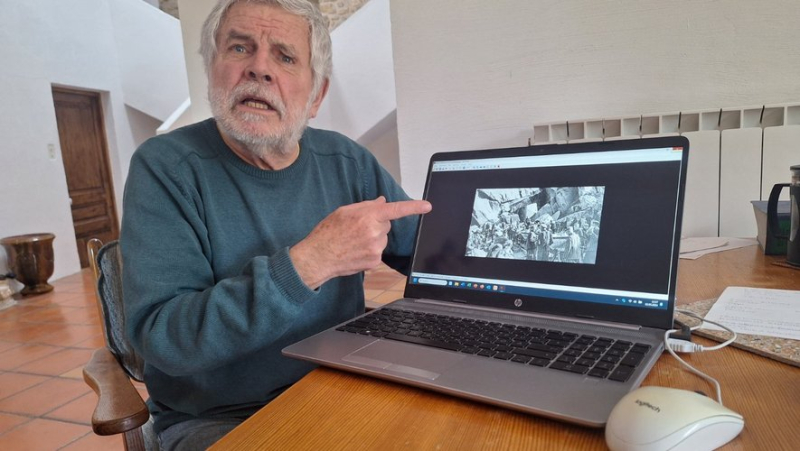
Franck Nonnenmacher montre une des rares photos du camp de Flossenbürg où a été interné son oncle. MIDI LIBRE – C.M.
Frank Nonnenmacher, qui partage sa vie entre le Gard et l’Allemagne, s’est battu pour la reconnaissance de ces oubliés de l’Histoire. Un combat difficile…
In his house in Castelnau-Valence, a small village between Nîmes and Alès, Frank Nonnenmacher spread his notes on a thin wooden table. This table here makes perfect sense. Inherited from his beloved uncle, it carries a part of the soul of Ernst Nonnenmacher whose life led Frank, retired professor of Political Science at the University of Frankfurt, to explore a completely hidden from the history of his country. That of "green and black triangles".
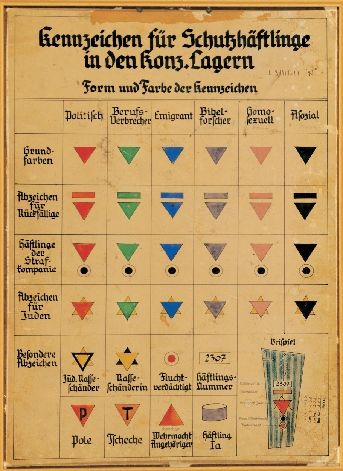
The Nazi regime had established a classification between deportees. FREE NOON – DR
The meaning of these fabric triangles worn by certain deportees (from 70,000 to 80,000 people according to estimates) is little known, including in Germany, while most of these deportees were Germans.
"The green triangles designated those whom the Nazi regime called antisocials, and the black triangles those whom it described as born criminals or criminals professionals", explains Frank Nonnenmacher who has just published a book on the subject with testimonies from descendants.
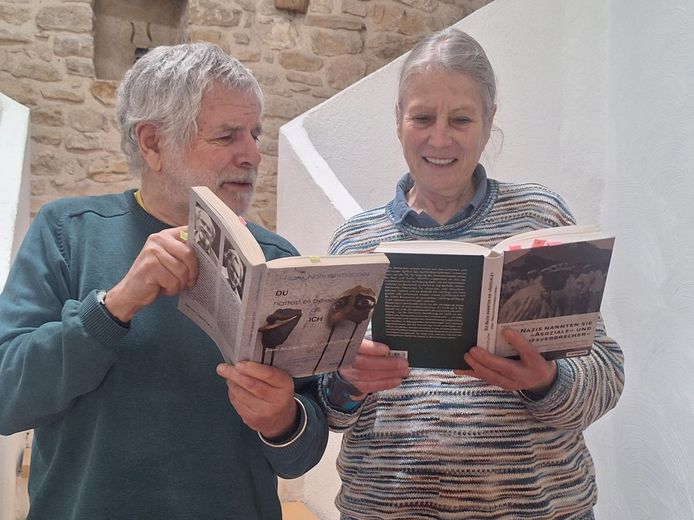
Frank and Eva live between Gard and Germany. The political science professor from Frankfurt has written two books. FREE NOON – C.M.
The "asocials", a vague and arbitrary word, included all those who did not correspond to the ideology of the good Aryan: precarious people, vagabonds, beggars, peddlers, prostitutes… The qualification of criminal included even petty criminals. "The goal was to exterminate them and liberate society from these people", underlines Frank Nonnenmacher.
Declared antisocial because he commits petty thefts to survive
They were destined to die at work, because the SS wanted to make this workforce profitable. This is what Uncle Ernst experienced. "My grandmother found herself alone at the age of 14 in Stuttgart where she survived on small ironing jobs". She gave birth to two sons – Ernst in 1908 and then Gustav (Frank's father) in 1914 – from two different and absent fathers. Gustav was placed in an orphanage by the social services, Ernst lived in poverty with his mother, committing thefts to survive (stealing food, coal, etc.) in the context of the extreme poverty of the great depression of the 1920s and 1930s.
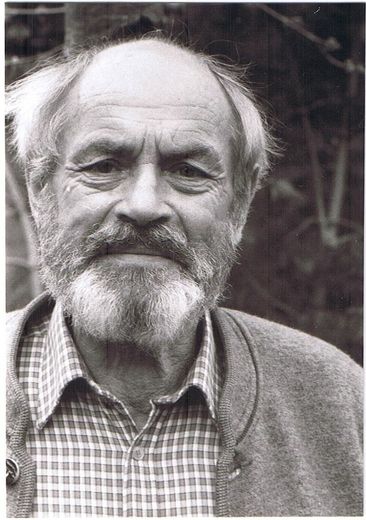
Ernst Nonnenmacher deported for stealing enough to simply eat and survive. Midi Libre – Eva Fischer.
Declared antisocial, Ernst was sent to a concentration camp (Flossenbürg) where the prisoners, in their striped uniforms, worked in immense granite quarries in appalling conditions. On the verge of death, he will only owe his survival to a change of sides, thanks to his ability to make special baskets for transporting ammunition.
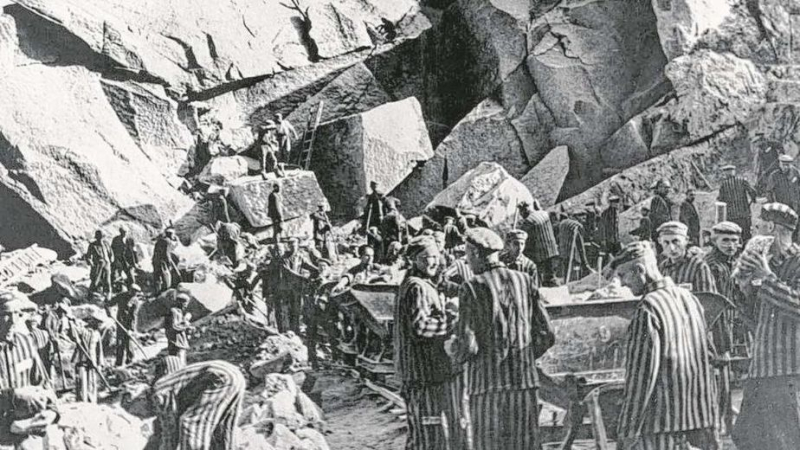
The Flossenbürg camp, where prisoners worked in granite quarries. FREE NOON – Flossenbürg camp memorial document.
“The Nazis killed my passion”
Frank Nonnenmacher, decorator of the Federal Cross of Merit for his work in memory, published a first book about ten years ago on the life trajectories of his father Gustav and his uncle Ernst. Gustav, éraisé in an orphanage, was enlisted in as a pilot in the Luftwaffe while Ernst was an intern. in concentration camp. Passionate of aviation, Gustav will never again touch à a plane after the war, refusing the offer to fly for the Americans or for Germany later, despite the fact that attractive financial proposals. An artist and pacifist, he preferred poverty because, in a devastated country, he preferred poverty. after the war, no one bought art…hellip; "The Nazis killedé my passion", he had confided to his son. In the 80s, Eva Fischer, also a teacher, had been able to bring Ernst into one of her classes. A rare and precious testimony that she had the good idea to record. It seems to be, to this day, the one and only captured testimony of a “green or black triangle” surviving from the camps.
After the war, the political deportees claimed their status as victims and demanded compensation. Ernst tried the same approach. And he hit a wall… Nothing had been planned for these deportees, who were even implicitly made to understand that their internment, given their behavior, was more or less justified. Ernst then decided to keep silent about this episode in his life. “He didn't even say a word to his wife about it,” his nephew notes.
No study, no publication existed on this subject in Germany
The uncle would only speak several decades later, faced with repeated requests from his nephew. With this testimony, Frank Nonnenmacher then realizes that there is absolutely no study, no historical research, no publication on these deportees while the culture of memory is very strong in the country.
“All the victims have kept quiet. Worse, the descendants also keep the secret and the silence. It is as if the victims and their descendants have integrated the image that society had of them”, notes the professor who then launches into a fight to have these denied victims recognized.
Passionate about French culture
Frank Nonnemacher, passionate of French culture, has traveled across France since his youth. He and his partner Eva Fischer bought a house in the pretty village of Castelnau-Valence. "We weren't looking for the sun or the sea& ;quot;, smiles Franck, "but à meet people…" ;In Castelnau, the couple got involved in local life and was part of an association working on the heritage and history of the village. An association which has notably found two forgotten Poilus (the village had no war memorials) and organized for several years from November 11th otherwise with different perspectives on the war in Germany and France and on friendship Franco-German.
"Sentences are not enough, actions are needed!"
He particularly regrets that the associations of political deportees did not involve them in their efforts. He launched an online petition which collected 20,000 signatures. In 2020, the Bundestag (German Parliament) finally adopted a resolution finally recognizing these victims. With in particular this sentence: "No one was, rightly, in the concentration camps."
"But sentences are not enough, actions are needed. Four years later, unfortunately nothing has been implemented", deplores Franck Nonnenmacher who calls in particular for historical research and investigations to be carried out on responsibilities during the arrests, or the creation of a memorial…
The painful testimonies of descendants in a book published in March
The 20 people who testify in his book, "Die Nazis nannten si "Asoziale une Berufsverbrecher (still untranslated), all evoke for the first time publicly the journey of their ancestors (11 of whom died in the camps) as well as the impact that this tragedy had on their families, over several generations. 80 years later, the pain and tears are still there. The wound is still raw.
The book was published by campus-Verlag, available on ebook.
I subscribe to read more




